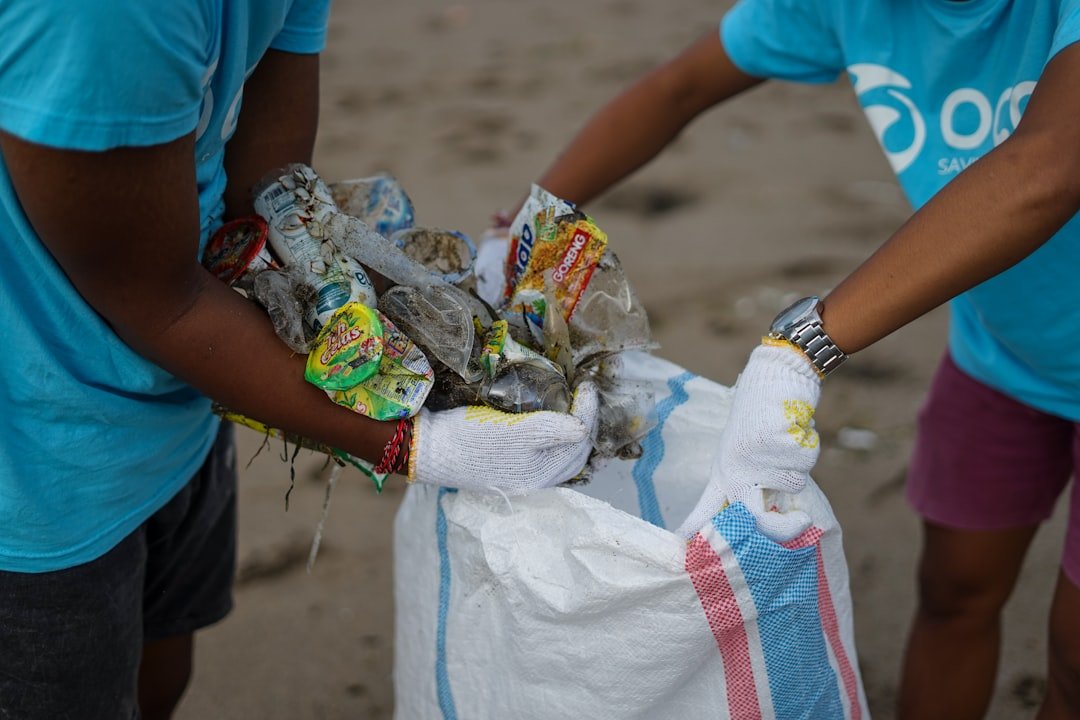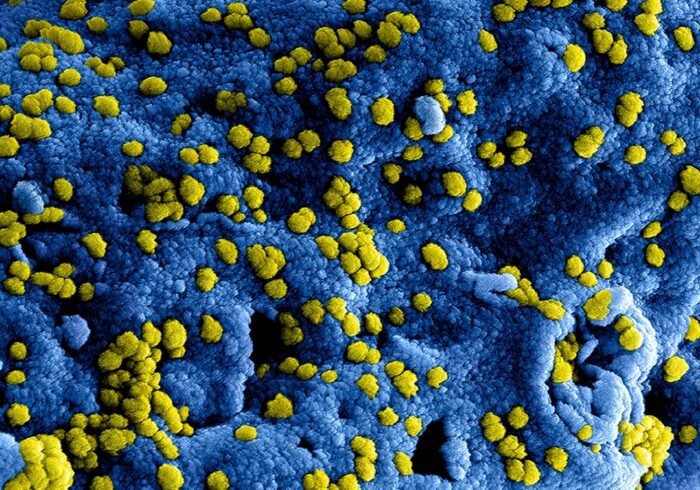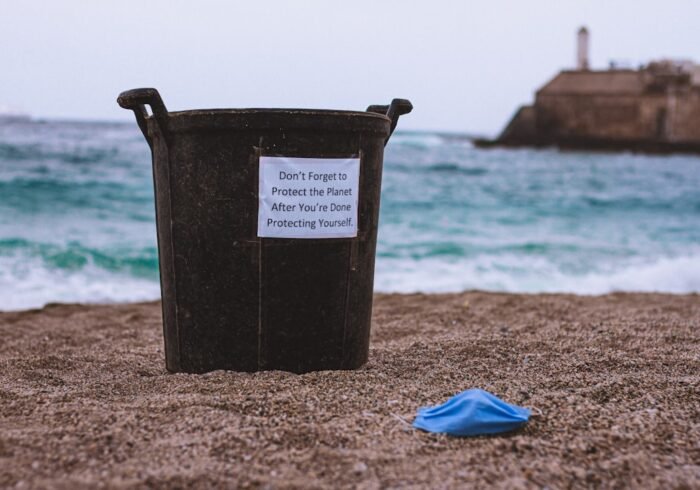Marine ecosystems, wildlife, and human health are all impacted by ocean pollution, which has become one of the 21st century’s most urgent environmental problems.
When pollutants like plastics, chemicals, and untreated waste enter marine environments, the results can be disastrous.
Key Takeaways
- Ocean pollution has a detrimental impact on marine life, ecosystems, and human health.
- Organizations like Ocean Conservancy and The Ocean Cleanup are actively working to clean up ocean pollution and raise awareness.
- Government policies and regulations play a crucial role in addressing and preventing ocean pollution.
- Innovative technologies such as ocean cleanup systems and bioremediation are being developed to clean up ocean pollution.
- Collaborative efforts between organizations, governments, and individuals are essential in tackling ocean pollution effectively.
While toxic substances build up in the food chain & eventually affect human populations that depend on seafood for sustenance, marine life suffers from the ingestion of plastic debris, which can result in harm or even death. Beyond the immediate harm to marine life, ocean pollution has broader effects. Often referred to as the “rainforests of the sea,” coral reefs are especially susceptible to contamination. The delicate balance of marine biodiversity is upset when algal blooms caused by nutrient runoff from cities & agriculture suffocate coral reefs.
Also, by releasing greenhouse gases & upsetting carbon cycles, ocean pollution fuels climate change. Oceans that absorb too much carbon dioxide become more acidic, endangering marine life that is vital to the oceanic food web, like plankton and shellfish. The interdependence of these systems emphasizes how urgently comprehensive approaches to addressing ocean pollution are needed. Organizations Dedicated to Combating Ocean Pollution Through a variety of projects & programs, a large number of organizations are working to address the issue of ocean pollution. Over the course of more than 40 years, the Ocean Conservancy has been a leading advocacy & action group.
In order to raise awareness of the extent of ocean pollution, their yearly International Coastal Cleanup organizes thousands of volunteers from all over the world to gather trash from beaches and waterways. Ocean Conservancy drives legislative change by educating legislators about the causes & effects of marine debris through data collection and analysis. An additional important actor in the battle against ocean pollution is The Ocean Cleanup, a nonprofit dedicated to creating cutting-edge technologies to extract plastic from the oceans. The Ocean Cleanup was established in 2013 by Boyan Slat and has made great progress in creating devices that can effectively collect floating plastic waste.
| Organization | Initiative | Impact |
|---|---|---|
| Ocean Cleanup | Developing advanced technologies to rid the world’s oceans of plastic | Successfully removed 60,000 pounds of plastic from the Great Pacific Garbage Patch |
| 4ocean | Empowering individuals to remove trash from the ocean and coastlines | Removed over 10 million pounds of trash from the ocean |
| Surfrider Foundation | Organizing beach cleanups and advocating for policy changes | Conducted over 1,000 beach cleanups and influenced over 100 coastal victories |
By addressing riverine sources of plastic waste, their creative approach seeks to prevent future accumulation in addition to addressing current pollution. A cleaner ocean is becoming a reality thanks to initiatives like The Ocean Cleanup, which combine grassroots initiatives with technology. The Role of Policy & Government in Addressing Ocean Pollution Policy and government action are essential in addressing ocean pollution. Regulations that restrict the amount of waste that ends up in the ocean & encourage environmentally friendly business practices can be established by effective legislation.
For example, a lot of nations have banned single-use plastics, which contribute significantly to marine debris. These regulations encourage companies and customers to switch to more sustainable options while also lowering the quantity of plastic that ends up in the ocean. Given that marine debris transcends national borders, international cooperation is also crucial in combating ocean pollution. The MARPOL Convention and other treaties seek to stop pollution from ships and offshore platforms, while regional agreements concentrate on particular problems like the management of plastic waste.
To create all-encompassing plans that tackle the regional & worldwide causes of ocean pollution, governments must cooperate with NGOs and scientific communities. By giving environmental preservation top priority when formulating policies, governments can establish a framework for sustainable ocean management that benefits human populations as well as marine ecosystems.
An important development is the creation of autonomous drones & underwater robots that are able to track & gather information about marine debris.
By using these technologies, scientists can more accurately map areas of pollution and evaluate the condition of marine ecosystems. These technologies can evaluate enormous volumes of data by applying artificial intelligence and machine learning, yielding insights that guide policy choices and cleanup initiatives. Along with monitoring technologies, a number of organizations are investigating cutting-edge materials for efforts related to cleanup. Tests are being conducted on biodegradable nets and barriers composed of sustainable materials to collect plastic waste without endangering marine life.
Also, waste is being converted into useful resources thanks to advancements in recycling technology, which allow for more effective processing of collected debris. With further development, these technologies have enormous potential to drastically lower ocean pollution and restore marine habitats. In order to combat ocean pollution, cooperation between different organizations is essential.
These organizations can increase their influence & reach larger audiences by combining their resources, skills, and knowledge. For instance, collaborations between private businesses, research institutes, & environmental NGOs have produced effective programs meant to lessen the amount of plastic debris in the ocean. These partnerships frequently entail cooperative research initiatives that design new waste management technologies or evaluate the efficacy of various cleanup techniques.
The Global Partnership on Marine Litter (GPML), which unites governments, non-governmental organizations, academic institutions, and industry stakeholders to address marine litter globally, is an example of cooperation. GPML seeks to develop a cohesive strategy for combating ocean pollution by exchanging best practices and encouraging communication between various groups. The efficacy of individual organizations is increased by such cooperative efforts, which also promote a sense of collective accountability for preserving marine environments. The Value of Education and Awareness in the Fight Against Ocean Pollution Education and awareness are important ways to fight ocean pollution. Increasing public awareness of the causes & effects of marine debris can motivate people to take local action.
By including environmental education in their curricula, schools play a crucial part in this endeavor. Ocean stewardship can be ingrained in children at a young age through programs that involve them in practical activities like beach clean-ups or recycling campaigns. Campaigns on social media have also been successful in raising awareness of marine pollution.
Companies use social media sites like Instagram and Twitter to post gripping images and narratives that draw attention to the predicament of marine life harmed by plastic waste. These campaigns can reach a larger audience & inspire support for cleanup efforts by enlisting celebrities and influencers. The development of a culture of environmental responsibility is ultimately necessary to bring about long-lasting change in the way that people interact with the oceans.
Organizations’ Success Stories in Reducing Ocean Pollution A number of organizations have made significant progress in reducing ocean pollution, setting an example for others working in the field. One such example is the Surfrider Foundation, which has organized thousands of volunteers nationwide to promote laws that safeguard coastal areas and clean up beaches. Due to their grassroots efforts, plastic waste along well-known shorelines has significantly decreased, and beachgoers’ awareness of sustainable practices has increased. The implementation of The Ocean Cleanup’s first extensive cleanup system in the Great Pacific Garbage Patch is another noteworthy accomplishment.
Since its introduction, this creative system has effectively gathered thousands of pounds of plastic debris, highlighting the potential of technology-driven approaches to combating ocean pollution. These success stories not only demonstrate practical tactics but also give hope that significant progress in protecting marine ecosystems can be achieved through group efforts. How Individuals Can Help Fight Ocean Pollution Through their everyday decisions and actions, individuals can make a significant contribution to the fight against ocean pollution. Modest lifestyle adjustments can greatly lower individual contributions to marine debris. One way to reduce waste production is to use reusable containers, bottles, & bags rather than single-use plastics.
Also, people can donate their time & energy to the restoration of contaminated beaches and waterways by taking part in neighborhood cleanup events hosted by environmental or community organizations. Another effective way for individuals to change the world is through advocacy. Citizens can have an impact on local, national, & international decision-makers by endorsing laws that try to reduce the production of plastic and encourage sustainable practices. Their voices can be amplified in the fight against ocean pollution by participating in social media campaigns or sending letters to legislators. In the end, every action matters; when people unite with a common goal of preserving the oceans, they can cause a chain reaction that results in meaningful change.
In summary, combating ocean pollution necessitates a multipronged strategy that includes businesses, governments, cutting-edge technologies, teamwork, education, success stories, and individual acts. Society can strive toward a healthier future for our oceans and everyone who depends on them by being aware of the effects of ocean pollution and actively contributing to solutions.
Ocean pollution clean up organizations play a crucial role in protecting our marine ecosystems from the devastating effects of pollution. One related article that sheds light on the impact of climate change on our world can be found here. Understanding the connection between climate change and ocean pollution is essential for these organizations to effectively combat the growing threat to our oceans. By addressing the root causes of pollution and implementing sustainable practices, we can work towards a cleaner and healthier marine environment for future generations.



